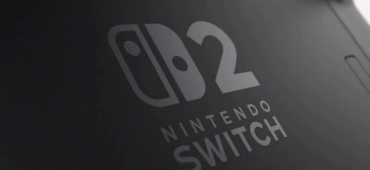
- Media & Gaming
Nintendo Pulls Switch 2 from Amazon Over Unauthorized Sales
5 minute read

Nintendo Switch 2 sales hit record numbers despite Amazon boycott over unauthorized resellers flooding US marketplace
Key Takeaways
- Nintendo Switch 2 missed Amazon launch after Nintendo pulled products from Amazon’s US site due to unauthorized third-party sellers undercutting official prices with bulk imports from Southeast Asia.
- Switch 2 sold 3.5 million units in four days worldwide, making it Nintendo’s fastest-selling console, while Amazon lost significant revenue during this critical launch period.
- Distribution partnership restored as Nintendo games return to Amazon with new delivery agreements that prevent street date breaks, allowing pre-orders for upcoming Switch 2 titles priced at $69.99-$79.99.
Introduction
Nintendo Co. severed its relationship with Amazon.com Inc.’s US marketplace in an unprecedented move that cost the e-commerce giant access to the biggest gaming console launch in history. The Japanese gaming company pulled its products from Amazon following disputes over unauthorized sales practices by third-party merchants.
The conflict centers on sellers who purchased Nintendo products in bulk from Southeast Asia and resold them on Amazon’s US platform below official pricing. This gray market activity prompted Nintendo to cease direct sales through Amazon, resulting in the retailer missing the Switch 2 launch entirely.
Key Developments
The dispute escalated over a year ago when Amazon began canceling pre-orders for first-party Nintendo Switch games without explanation. Customers who had reserved titles like Paper Mario: The Thousand-Year Door received refunds as Amazon stopped selling Nintendo-published games altogether.
When Nintendo announced the Switch 2 earlier this year, Amazon remained conspicuously absent from launch preparations. Competitors like Walmart and Best Buy rolled out pre-order pages following Nintendo’s official Direct presentation, while Amazon’s gaming section notably lacked any Switch 2 listings.
The unauthorized sales issue stemmed from pricing disparities between regions. Bloomberg reports that third-party sellers exploited these differences to undercut Nintendo’s advertised rates, creating downward pressure on official pricing structures.
Market Impact
Amazon’s exclusion from the Switch 2 launch carries significant financial implications. The console sold over 3.5 million units worldwide within four days, establishing it as Nintendo’s fastest-selling hardware launch. Missing this sales window likely cost Amazon substantial revenue in both hardware and high-margin accessories.
The gaming hardware segment typically generates strong attach rates, with new console buyers purchasing multiple games and accessories. Amazon’s absence during this critical period allowed competitors to capture market share in a lucrative category that drives repeat purchases.
Switch 2 titles now command premium pricing at $69.99 to $79.99 for first-party games. This reflects broader industry trends toward higher game pricing, though it may increase price sensitivity among consumers and intensify retailer competition for exclusive bundles.
Strategic Insights
The dispute highlights Nintendo’s growing emphasis on launch control and brand protection. Gaming companies increasingly prioritize preventing street date breaks and unauthorized early releases, particularly as competition intensifies and launch windows become more critical to commercial success.
Nintendo’s approach reflects a broader industry trend toward direct-to-consumer strategies. The company’s emphasis on digital sales through the eShop, combined with selective physical retail partnerships, demonstrates how platform holders seek greater control over customer relationships and pricing.
The resolution appears to balance Nintendo’s need for launch integrity with Amazon’s distribution scale. New delivery agreements reportedly prevent early shipments while maintaining Amazon’s role as a key retail channel for Nintendo products.
Expert Opinions and Data
According to McKinsey research, leading technology companies derive up to 60% of their revenue from international markets. This underscores the importance of global distribution partnerships in maximizing reach, particularly for hardware launches that function as worldwide events.
Industry analysts note that the Switch 2’s hybrid design continues Nintendo’s successful strategy of offering both handheld and docked gameplay. Enhanced features including a larger display, increased storage, and 4K output position the console competitively in a market focused on flexibility and performance.
The console’s backward compatibility with GameCube titles through Nintendo Switch Online signals continued monetization of legacy content through subscription services. This approach aligns with broader industry moves toward recurring revenue models and digital-first strategies.
Conclusion
The Amazon-Nintendo dispute demonstrates the high stakes of modern hardware launches and the delicate balance between brand control and distribution scale. Both companies have reached an accommodation that preserves Nintendo’s launch integrity while restoring Amazon’s access to a lucrative product category.
The resolution establishes a framework for managing future product launches in an increasingly complex retail environment. As gaming becomes more globally interconnected and digitally focused, strategic partnerships that balance platform holder control with retailer capabilities become essential for industry success.








